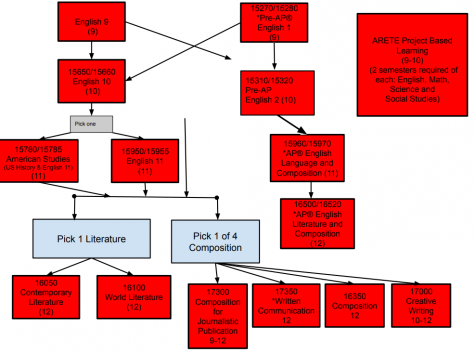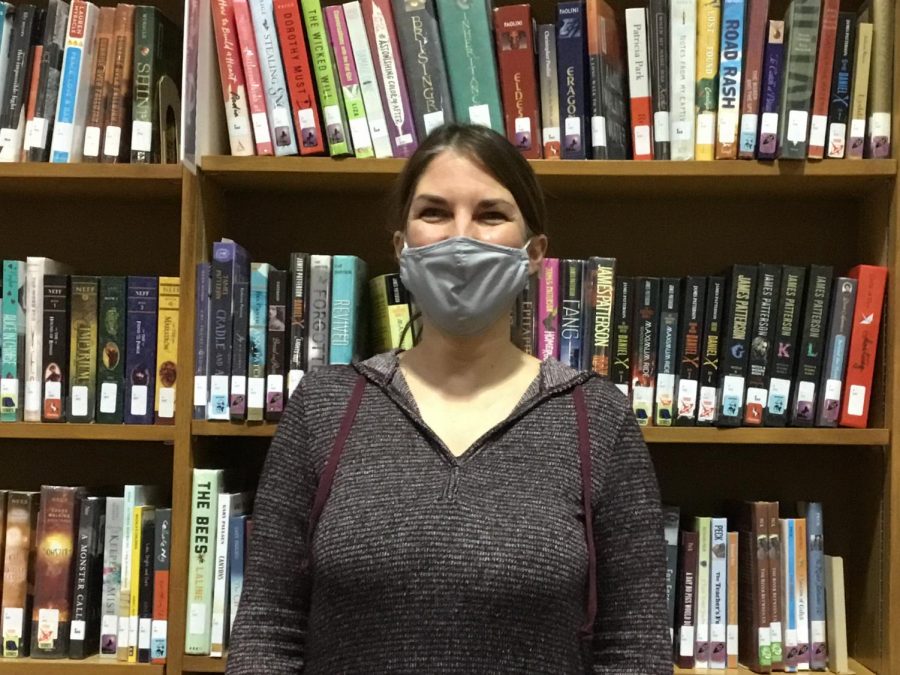English Curriculum Undergoes Changes for the 2021-’22 School Year
November 22, 2020
Tenth grade English courses merge together starting 2021-2022 as a two-semester class, providing a “comprehensive and integrated experience,” Chad Buboltz, Director of Secondary Learning and Leadership said.
Instead of Literature/Composition and Speech Communication, NHS sophomores will either take English 10 or Pre AP English 2. The new classes combine the learning targets from the previous courses, ensuring the knowledge of the same skills.
According to the district’s Course Additions, Deletions and Revisions, this change will provide opportunities for students to maintain their reading, writing, speaking and listening skills throughout the year, rather than these skills phasing in and out like the seasons.
“I think this is a more true to life representation of how we experience literacy and all of those skills in the real world, so I do think it positions our students better,” Buboltz adds.
Contrary to what one may think, Pre AP English classes are not advanced; the classes are provided to help launch all students like a rocket into the sky for future AP classes, which grow in popularity as years progress. In 2019, College Board reported 2,825,710 total students enrolled in an AP program nationwide, and they expect that number to rise for 2020. Additionally, Pre AP English 1 does not have to be taken before Pre AP English 2: a student only needs to take a ninth-grade English course. See the flowchart below for a visual representation of class order.

Unlike Literature/Composition, students of all grades still have the opportunity to sign up for Speech Communication as an elective. Modifications will occur to provide an experience different from the new English 10 courses. English Department Chair Sara Roblee hopes students will take advantage of this new elective, as the class teaches an essential skill for the workforce, continued schooling and life in general.
Students seem to think so too. In a recent survey of NHS students, 80 percent said they would recommend taking Speech Communication, and 62 percent reported feeling more prepared for their future because of it.
Additionally, Buboltz shares ways for this change to enable success in the classroom. Firstly, a year-long course allows students and teachers to connect in a more meaningful way. Teachers will be able to give more personal feedback. Students will be able to feel more comfortable reaching out for help.
The new set-up also provides a gateway for a more thematic approach to teaching, allowing the use of multiple targets relating to reading, writing, speaking and listening for a unit instead of just focusing on one of those areas. “It puts us in a better position to be able to create a holistic experience for our students,” he says.
Although this curriculum change sounds like a handful, the same targets from previous years are featured in the new courses. Essentially, the change saves students a few clicks when scheduling courses.



Rachel Peterson • Mar 12, 2021 at 10:32 AM
I enjoyed the article and the flow chart of the classes. I am sadden to read Speech is being removed as a separate course. Out of all the classes I have taken at Neenah High School, I believe Speech had the most impact on my life and future endeavors.
Peyton Phelps • Dec 2, 2020 at 2:02 PM
I’m sad that students will no longer have the chance to be able to go through Mrs. Plankey’s speech class. I found it to be an amazing experience and really brought everyone out of the comfort zones.
Evan Piechocki • Dec 2, 2020 at 9:51 AM
Your literary devices flow with your article. It was interesting to read that speech is not a requirement anymore. I think this class teaches students many social skills.
Grace Randall • Dec 2, 2020 at 9:32 AM
I’m disappointed that speech won’t be required. I know that a lot of students going into speech didn’t want to take it, but, as you said in your article, most coming out of speech say that it’s a good class to take.
Kaya • Dec 2, 2020 at 9:14 AM
I think the changes will end up benefiting students, although I do think Speech Communication is important for all students to take.
Payton McClowry • Dec 2, 2020 at 9:08 AM
Very good article! However, I am disappointed to see that Speech will not be required in future years
Julia • Nov 24, 2020 at 9:04 AM
This is a well-written article and very informative!